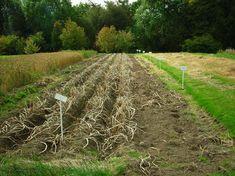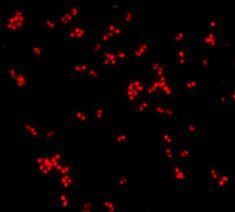

Soil scientists in Scotland have discovered a microbe of global significance to farmers and growers. Microbiologists at the University of Aberdeen have identified a novel organism that performs the process of ammonia oxidation in acidic conditions and have also demonstrated that this organism is abundant and globally distributed in acidic soils.
Scientists had previously struggled to understand how ammonia-based fertilisers are inactivated by micro-organisms in soil.
Some organisms in soil oxidise ammonia and a major consequence is the transformation and loss of nitrogen fertilisers used to improve crop production, resulting in groundwater and atmospheric pollution.
About half of the world’s agricultural soils are acidic, so the mechanism by which loss of fertiliser occurs in these soils has remained a mystery until now.
In two separate papers published recently in the journal Proceedings of the National Academy of Sciences USA, research performed at the University of Aberdeen not only identified the organism but found how abundant it is.
To recognise the importance of the Scottish site from which the organisms were obtained, and the university at which the microbe was first cultivated, the new organism has been named Nitrosotalea devanaterra, which means an ammonia-oxidising ‘rod’ from soil in Aberdeen, incorporating Devana, the Roman name for Aberdeen. It is part of the Domain of microbes known as Archaea.
The research team has now been awarded a £500,000, three-and-a-half-year research grant by the Natural Environment Research Council to investigate the unusual physiology of Nitrosotalea devanaterra and to find out more about its potential role in the loss of ammonia-based fertilisers and nitrous oxide gas emissions from soil.



